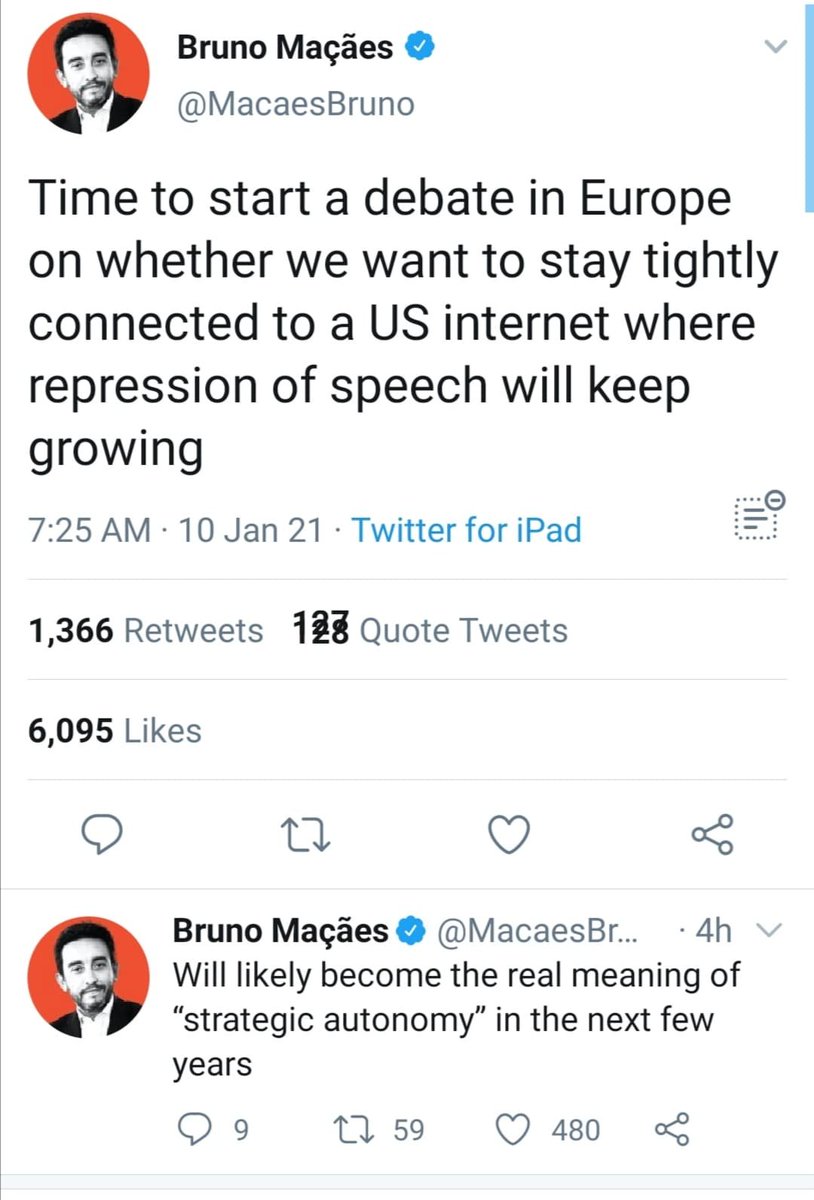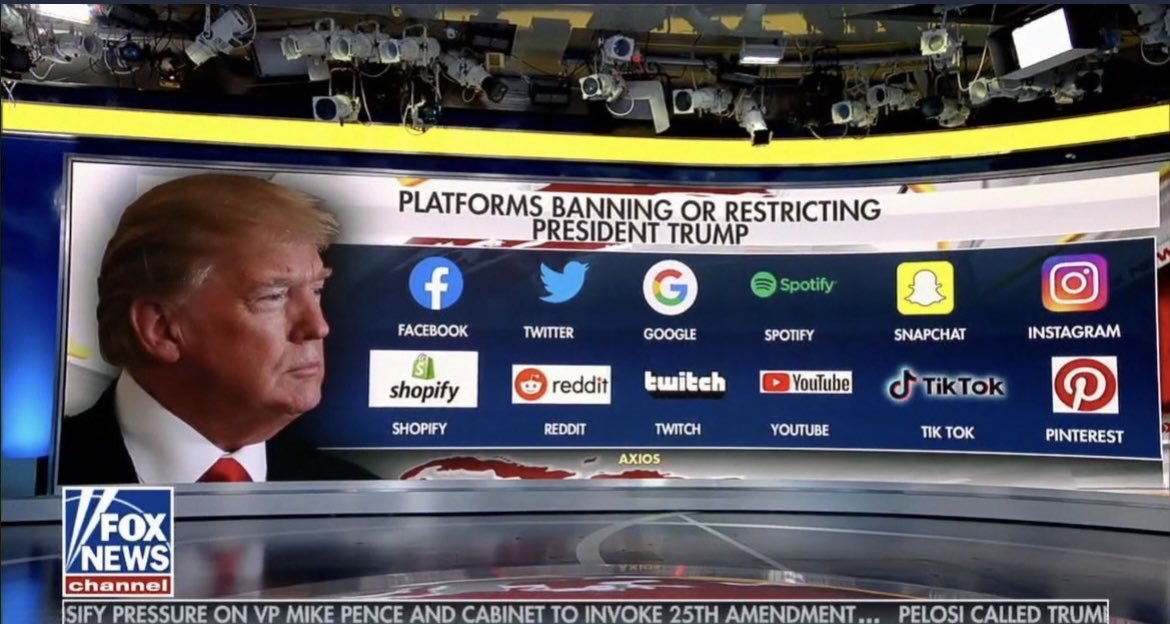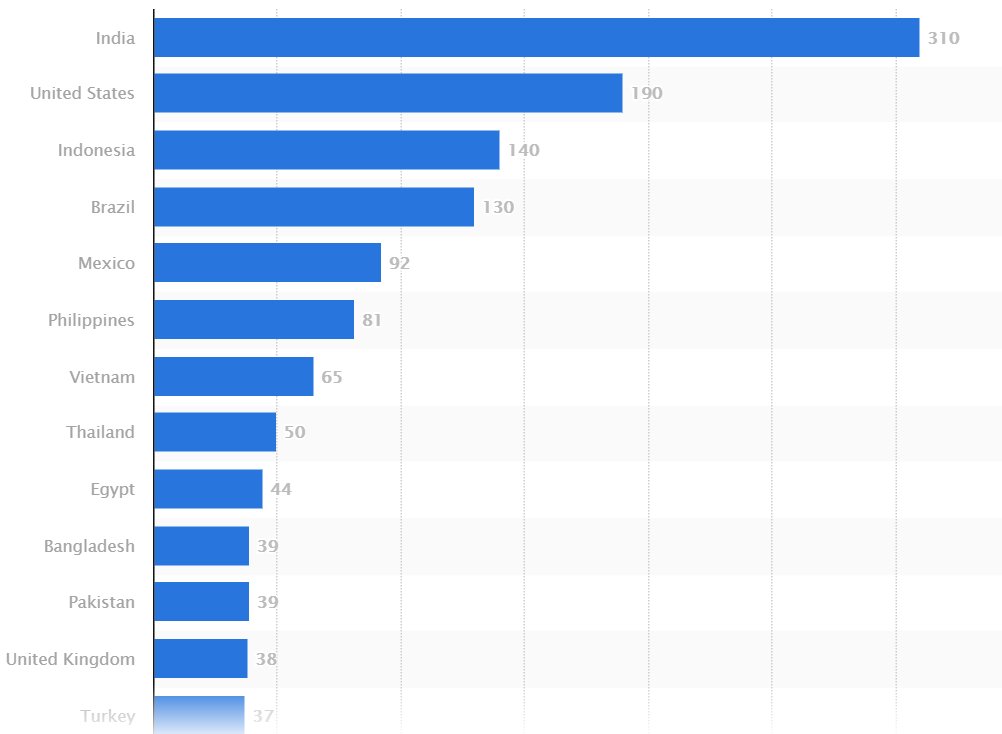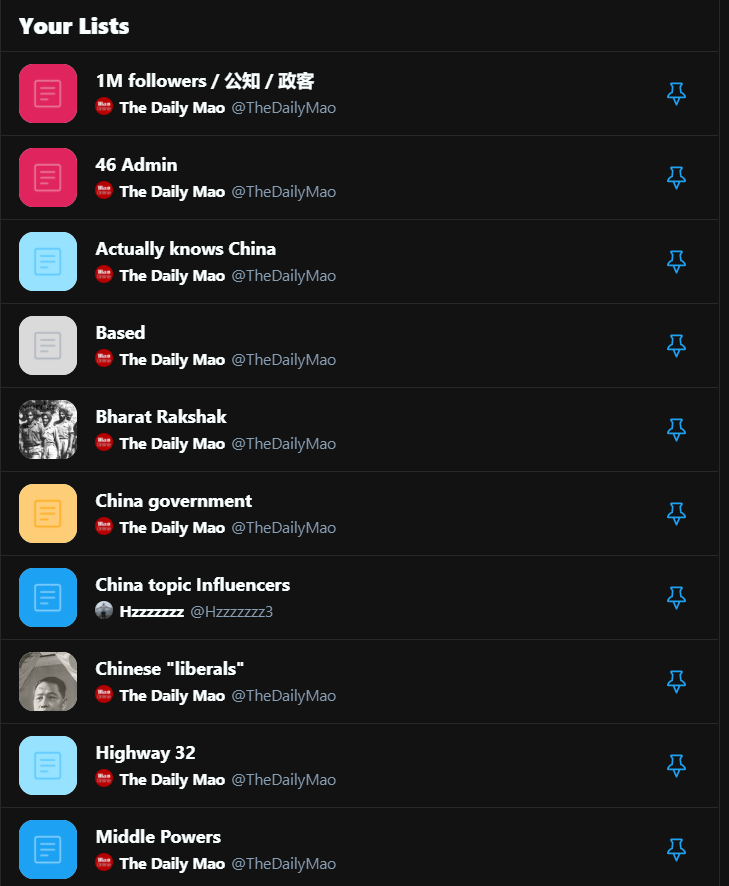
1/ US tech's ban of Trump gives China a once-in-a-decade opportunity to reset the global tech ecosystem in its favor. China should pay its tech firms to package and release an open source social media app, open source app store and mobile stack, and an open source cloud stack
2/ The blowback from bigtech doing this is going to be the balkanization of the internet. Every country + the EU is going to go for their own social media / mobile / cloud stack now @passluo 

3/ China obviously has a trust deficit with other major tech ecosystems, so Chinese apps will have trouble winning worldwide, but it can get around that by making it so that *no one* can dominate the global commons in the way that Facebook, Twitter, Google, and Apple currently do
4/ Providing a global toolkit to "de-Americanize" your tech stack will be a winning thesis in the 2020s. Besides the EU, for example, India is also concerned about US domination of its social communications channels @bhushan_gyan
https://twitter.com/balajis/status/1347902693537239040
5/ And because China booted out US tech firms early, it has a head start in having sufficient software muscle to provide easy, semi-assembled clones that other countries can just pick up and operate - and critically, scale and distribute by fiat
https://twitter.com/balajis/status/1347964718384697345
6/ To assuage concerns this will simply lead to "Chinese domination", China should make this 100% open source and free. Chinese companies provide how-to and documentation but that's it - no data goes back to China, no algorithm updates from China, all code is fully customizable
7/ And the sales pitch to any country leader outside the US will be very simple: "If they can do this to Trump, they can do this to you. Why not build your own stack?" 

8/ Since most of these countries lack the coding muscle to fully replicate a Twitter or FB, let alone a Google Play, iOS, or AWS stack, the need for open-source tooling and components that replicate it will be very high
9/ Let's use Turkey as an example. Turkey has 57 million Facebook users and 13 million Twitter users. China can help Turkey code a "Mutlu Türküm" FB clone that is then installed on all phones in Turkey by law. Turkey then pays app users small prizes for consecutive daily usage
10/ Concurrently, Turkey forces FB to make its social network exportable into Mutlu Türküm, and then 6 months later, bans Facebook from Turkey. Pair this with a truly open-source mobile platform and open-source cloud, and voila, Turkey just de-Americanized
11/ You can then repeat this across numerous countries: India, Brazil, Poland, Hungary, Bangladesh, Indonesia, the Philippines, Vietnam, Pakistan, Nigeria, Ecuador, Bolivia, Egypt, Thailand, Mexico... you can hit nearly all of Facebook's top geos with this 

12/ Then the US faces a brutal dilemma: it can either see its worldwide tech earnings take a major hit right as it's trying to resuscitate its own economy from COVID, or it can go to the mat and aggravate allies/neutrals alike by cajoling them to stay on US tech
13/ This is true revenge for Huawei, Tiktok, Wechat, Alipay, and all the other tech bans the US has done over the years. But besides emotional satisfaction, this also levels the playing field for Chinese tech by neutering platform effects favoring US incumbents across the world
14/ And since it looks like the US is going to push social media censorship hard over the next few years as it tries to purge Trumpism from politics, China will have plenty of easy examples to nudge countries around the world away from US platforms. 顺水推舟
15/ Lastly, just because this is open-source doesn't mean Chinese companies can't make money off this opportunity. There is plenty of dev tooling, enterprise SW, and other Chinese products that could see uplift from "mini-FBs" in other countries lillianli.substack.com/p/what-enterpr…
end/ This is one of those rare opportunities for China to make the world a better place, earn a crapload of $$$, and enhance its strategic position vs the US at the same time. China has to act fast though - this window won't stay open forever.
• • •
Missing some Tweet in this thread? You can try to
force a refresh













